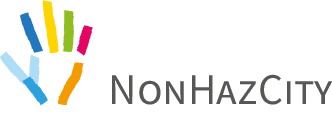Results of database check encouraging – call for use of the app
Products of everyday use may contain harmful substances, which often have serious effects on human health and on the environment. Plasticisers in plastics, dyes in textiles or flame retardants in furniture and electrical appliances are just a few examples.
Consumers have the right to find out from the seller or manufacturer, whether a product contains substances of very high concern (SVHCs). The supplier is legally obliged to inform a consumer on request, if the product contains an SVHC at a concentration above 0.1% by weight. The consumers have a ‘right to know’ under the European ‘REACH’ chemicals’ regulation. REACH established the setting up of a candidate list of SVHCs, to which substances are being added regularly. There are currently 223 substances on the list.
Although public awareness about SVHCs is increasing, many consumers remain unaware of the potential risks of these substances, let alone their right to information. Much also needs to be improved on the part of companies, so that they can properly meet their information obligations. A huge challenge for companies is the often very complicated and non-transparent supply chains.
To facilitate communication between companies and consumers, as well as along the supply chain, 20 organisations from 13 countries are working together under the framework of the ‘LIFE AskREACH’ project, funded by the European Union. The “Scan4Chem” smartphone app developed in this project enables consumers to scan a product barcode at the shop (or enter it or the product name manually) and ask for information on whether it contains SVHCs. If companies have registered their products in the database, they will not need to reply to individual consumer requests, but the information will be provided to the consumer directly, thus saving time and effort for both sides. All product information in the database is provided by either manufacturers or retailers, who are responsible for the correctness of the information.
Verification of the product information is partially performed in a randomized manner by the AskREACH consortium. Under this action, 49 products were selected from the database and were analyzed by an independent, accredited laboratory. All 49 were listed as SVHC-free items by the supplier. None of the SVHCs analyzed by the laboratory could be detected in any of the 49 products at a concentration above 0.1%, which means that the submitted information at the AskREACH database was indeed correct. However, according to our laboratory, one article exceeded a limit value under the provisions of the RoHS Directive. The RoHS Directive restricts certain hazardous substances in electrical and electronic products in order to lower their concentrations in waste. This result illustrates the complexity of regulating chemical exposure, which can involve additional pieces of legislation to REACH. Nonetheless, making use of your ‘right to know’ is already a big step towards safer products.
The results of the database product testing show very encouraging progress compared to the results of our sports articles testing conducted in 2020, where 82 products were bought randomly from stores around the EU. SVHCs were found in 24% of the tested sports articles and the limit of 0.1% was exceeded in about 11% of all cases.
The ‘Scan4Chem’ app is an excellent shopping companion and helps to make the right purchasing decisions for a healthier and more environmentally friendly lifestyle. If there is no entry in the database for a certain product, the app should be used to send an automatically generated request to the retailer or directly to the manufacturer.
Sending SVHC-requests is very helpful to further grow awareness of SVHCs and highlight consumer interest in SVHC-free products. This will incentivize companies to upload their product information to the database and make it readily available for their customers.
The app has already been downloaded more than 90.000 times and provides SVHC information to over 8.5 million products.
URLs:

